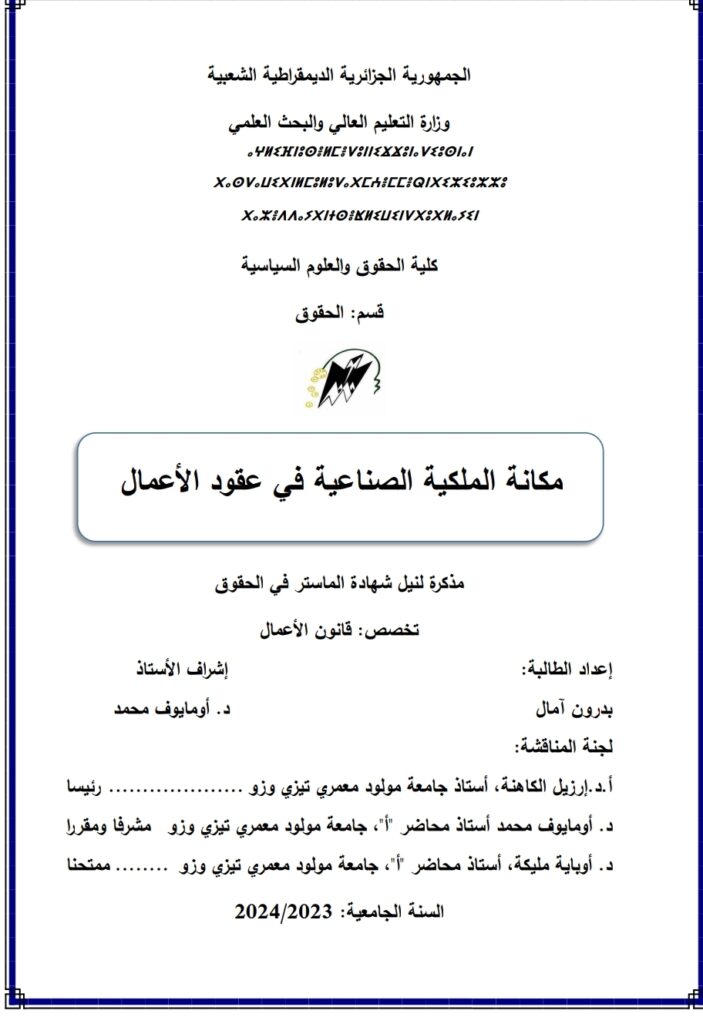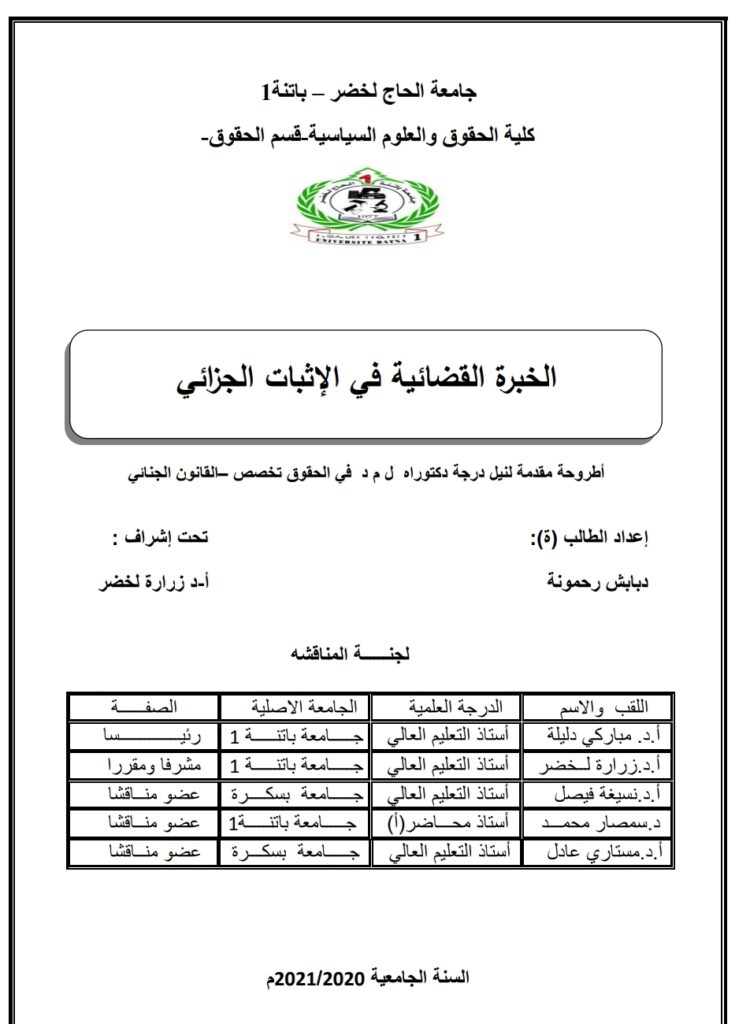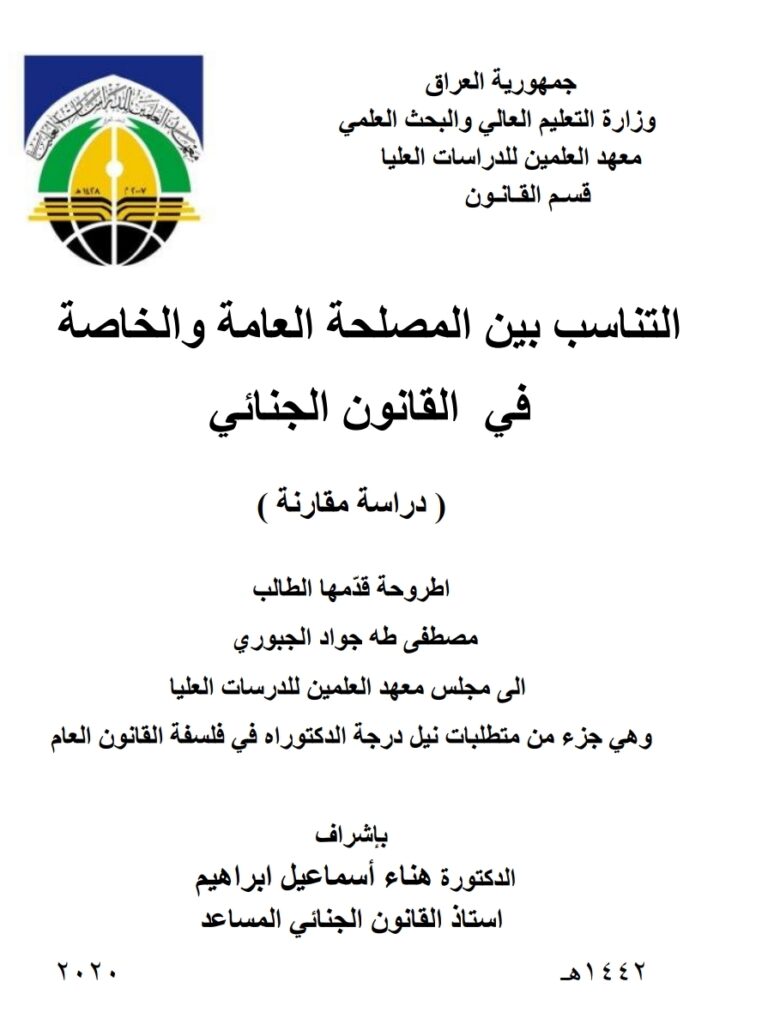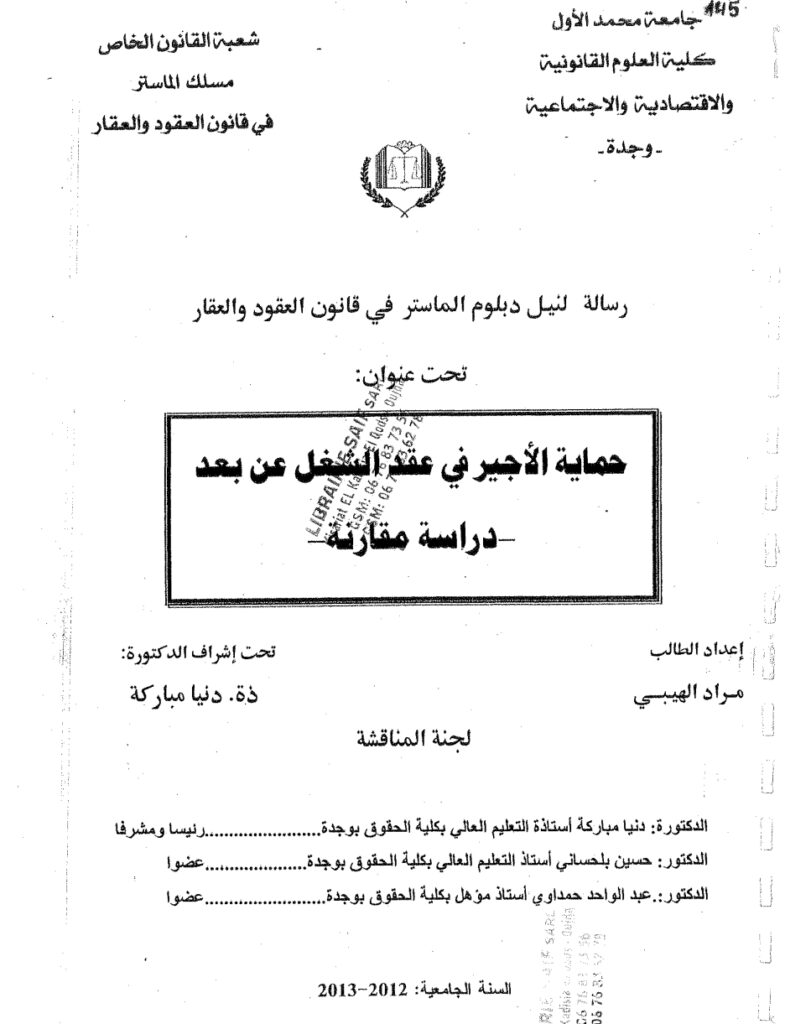المسؤولية الشرعية والمدنية لاستخدام تطبيقات الذكاء الاصطناعي في الشريعة الإسلامية والقوانين الوضعية دراسة وصفية تحليلية
المسؤولية الشرعية والمدنية لاستخدام تطبيقات الذكاء الاصطناعي في الشريعة الإسلامية والقوانين الوضعية
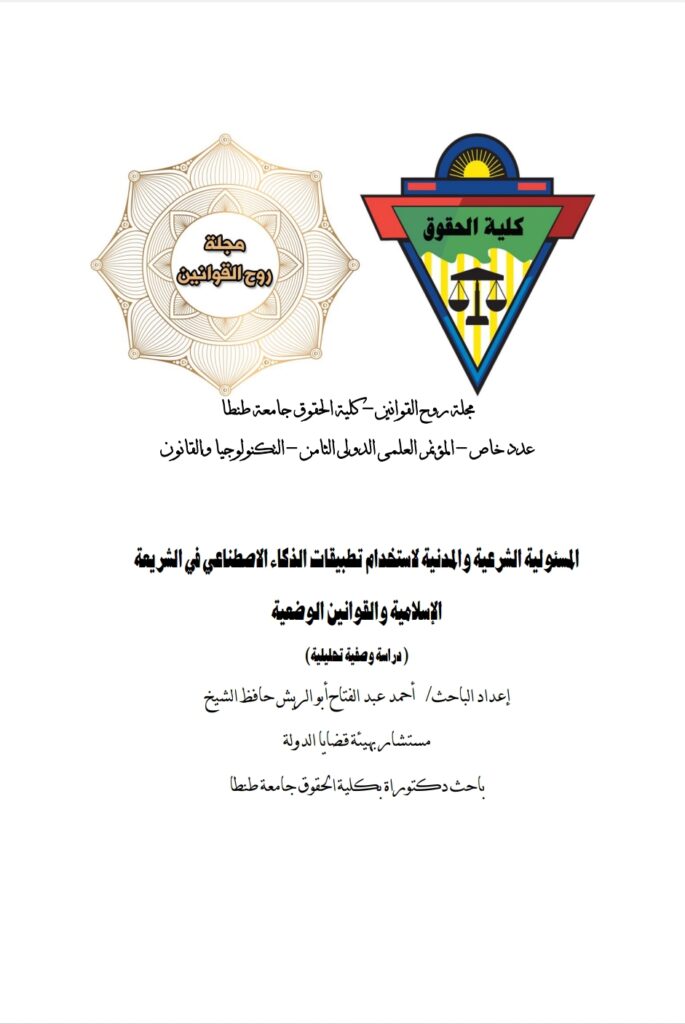
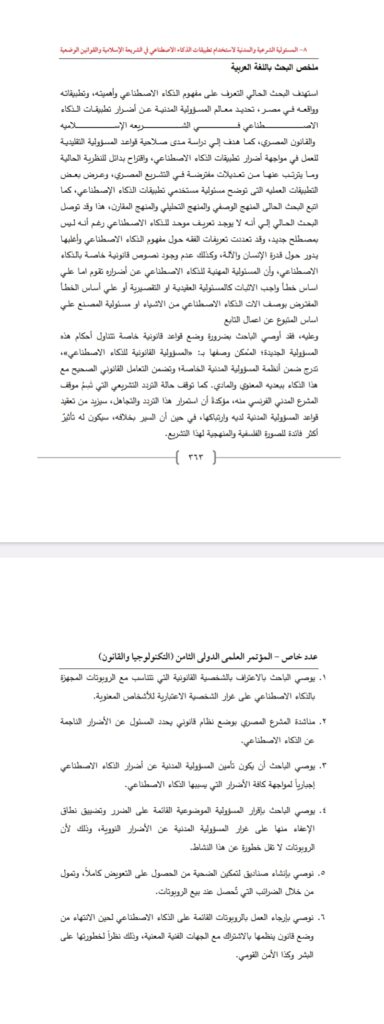
Research summary in EnglishThe current
research aimed to identify the concept of artificial intelligence, its importance, its applications and its reality in Egypt, to identify the features of civil liability for the damages of artificial intelligence applications in Islamic law. And the Egyptian law, as it aimed to study the validity of the traditional liability rules to work against the damages of artificial intelligence applications, and to suggest alternatives to the current theory and the consequent supposed amendments in the Egyptian legislation, and to present some practical applications that clarify the responsibility of users of artificial intelligence applications, as the current research followed. The descriptive approach, the analytical approach, and the comparative approach. The current research concluded that there is no unified definition of artificial intelligence, although it is not a new term.
There have been many definitions of jurisprudence about the concept of artificial intelligence, most of which revolve around the ability of man and machine, as well as the absence of legal texts related to artificial intelligence.
And that the professional responsibility of the artificial intelligence for its damages is based either on the basis of an error that must be proven, such as doctrinal or tort liability, or on the basis of the supposed error in describing the artificial intelligence machines as things, or the factory’s responsibility on the basis of the follower’s actions.Accordingly, the researcher recommended the need to develop special legal rules dealing with the provisions of this new responsibility.
What can be described as: “the legal liability of artificial intelligence”, is included in the private civil liability systems; It included correct legal dealings with this intelligence in both its moral and material dimensions. It also stops the state of legislative hesitation that characterizes the position of the French civil legislator towards it, stressing that the continuation of this hesitation and disregard will increase the complexity and confusion of its civil liability rules, while going against it will have a more beneficial effect on the philosophical and methodological image of this legislation.
1. The researcher recommends recognizing the legal personality that is appropriate for robots equipped with artificial intelligence, similar to the legal personality of legal persons.
2. Appeal to the Egyptian legislator to establish a legal system that determines who is responsible for the damages resulting from artificial intelligence.
3. The researcher recommends that the insurance of civil liability for the damages of artificial intelligence be compulsory to face all the damages caused by artificial intelligence .4. The researcher recommends approving objective liability based on damage and narrowing the scope of exemption from it, similar to civil liability for nuclear damage, because robots are no less dangerous than this activity.
5. We recommend the creation of funds to enable the victim to obtain full compensation, financed through taxes collected when selling bots.
6. We recommend postponing the work of robots based on artificial intelligence until the completion of a law regulating them in partnership with the concerned technical authorities, given their danger to humans as well as to national security.
